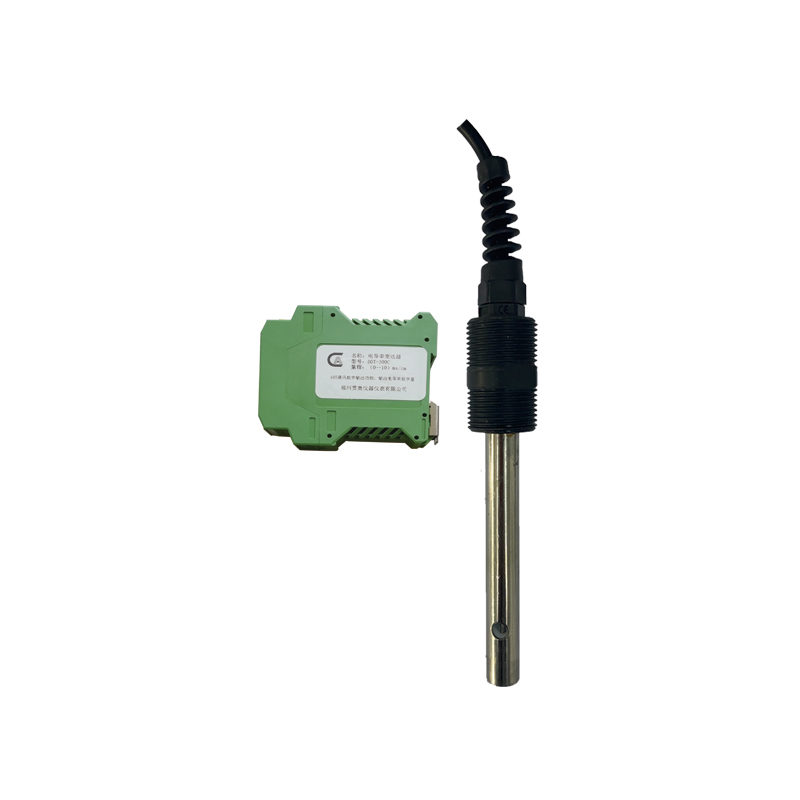Electrical conductivity is an important index to evaluate water quality parameters such as dissolved solids content, salinity and ion concentration in water. During water quality testing, the approximate pollution status can be quickly determined by conductivity, so many industries related to water quality will test the conductivity. However, with so many conductivity electrodes on the market, what problems should users pay attention to when making purchases ?

Conductivity electrode purchase considerations
1.Measurement range : Different conductivity electrodes have different measurement ranges, usually expressed in conductivity or solubility units. To ensure that the measurement range of the selected electrode covers the conductivity range of the sample you want to measure. If the conductivity of the sample exceeds the measurement range of the electrode, the measurement result will be inaccurate.2.Electrode type : There are many types of conductivity electrodes, including insertion type, immersion type, circulation type, etc. Different types of electrodes are suitable for different measurement environments and sample properties. The inserted electrode is suitable for measuring deep into the liquid. Appropriate electrode type should be selected according to specific application scenarios.
3.Temperature compensation : The conductivity of water samples usually changes with temperature, so the purchased conductivity electrode should have temperature compensation function, which can correct the influence of temperature on the measurement results. When selecting the electrode, you should consider whether the temperature compensation function is required to meet your measurement needs.
4.Material quality : Conductivity electrode is usually made of different materials, such as PVC plastic, stainless steel, polytetrafluoroethylene, etc. The electrode with good material quality and durability should be selected to ensure long-term stable measurement. Different water samples have different performance requirements for the corrosion resistance, wear resistance and stability of the electrode. For example, the online conductivity electrode of seawater uses the conductivity of polytetrafluoroethylene.
5.Maintenance and calibration : Different types of conductivity electrodes may require different maintenance and calibration methods. When selecting the electrode, the difficulty of electrode maintenance and calibration requirements should be considered to ensure that the electrode can be easily used and maintained. Some electrodes may require regular cleaning, calibration and replacement, and these factors should be fully considered.
6.Brand and price : The brand and price of the conductivity electrode are also considerations when choosing. When selecting the electrode, it should be considered comprehensively according to the budget and actual needs, and the electrode with good quality should be selected within the feasible range.
7.User evaluation and feedback : When selecting the conductivity electrode, you can view its user evaluation and feedback to understand other users ' evaluation of the electrode 's experience, performance and reliability. In order to better understand the advantages and disadvantages of the electrode, make a wise choice.
8. Compatibility : Conductivity electrode usually needs to be used with the monitoring system. Therefore, when purchasing electrodes, you should ensure that the electrodes are compatible with your existing systems, including connection methods, interface types, and electrode signal output. The purchased electrodes can be seamlessly connected and used with your monitoring system to ensure the accuracy and stability of the measurement.
9.After-sales service : As a testing equipment, the conductivity electrode may need to be repaired and maintained. Therefore, when selecting the electrode, we should pay attention to the after-sales service of the product, including warranty period, maintenance support, technical advice and so on. High-quality after-sales service can ensure that the problems encountered in use can be solved smoothly.
10.Practical application requirements : When choosing the conductivity electrode, it is still necessary to consider comprehensively according to your practical application requirements. Such as water sample properties, measurement conditions, monitoring requirements and other factors, select the most suitable conductivity electrode for their own needs.
In short, when purchasing conductivity electrodes, it is necessary to comprehensively consider factors such as detection range, electrode type, temperature compensation, material quality, maintenance and calibration requirements, compatibility, and after-sales service to ensure that the appropriate electrode is selected to meet your actual measurement needs.



